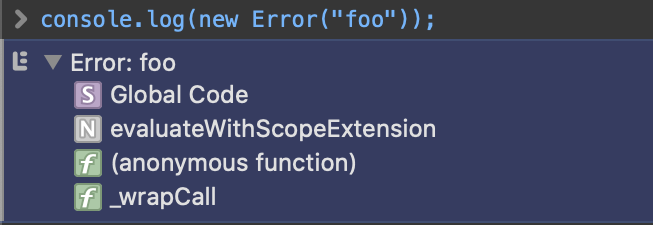purescript-console-extra
Unconstrained access the JS console.
Difference from purescript-console
Console functions from the
purescript-console
project are defined to operate only on strings. The show (e.g
logShow) variations are more generic, but still operate by using the
Show instance of the argument to build a string, to which the
respective console function is invoked on.
While this achieves the basic logging requirements, many JS environments implement far richer logging capabilities.
For instance, logging an Error in browsers also emits a stack trace.
Logging a DOM element emits a DOM tree that can further be inspected.
Multiple arguments can also be given to a console invocation.
This project aims to expose those capabilities.
Logging a single argument
Log functions in purescript-console-extra accept any type as
input. Printing is deferred to the underlying console environment.
log :: forall a. a -> Effect UnitLogging multiple arguments
Each log level also has a multiple argument variation.
log' :: forall a. Array a -> Effect UnitNote that calling log and log' on arrays translate to different
console calls.
| Purescript | Javascript |
|---|---|
log [1,2,3] |
console.log([1, 2, 3]) |
log' [1,2,3] |
console.log(1, 2, 3) |
A limitation of the log' is that all elements should be of the same
type.
Given the following definition:
someError :: Effect.Exception.ErrorThe following won't work:
log' [ "Uh oh" -- type is String
, someError -- type is Error
]A workaround is to declare both as Foreign.
log' [ unsafeToForeign "Uh oh"
, unsafeToForeign someError
]Alternatively, the library also offers log2 and log3 variations to
conveniently call log' for 2 and 3 arguments repsectively.
log2 "Uh oh" someError

